Monika Shealey makes history at Rowan University
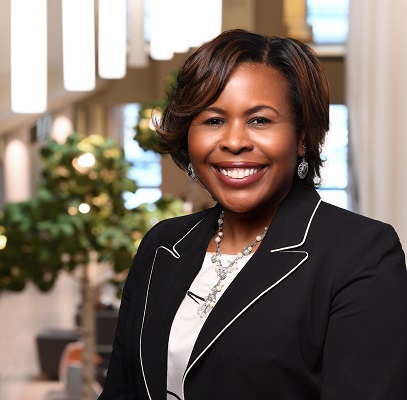
By Clyde Hughes | AC JosepH Media
In July, Dr. Monika Williams Shealey will make history as Rowan University’s first senior vice president of Diversity, Equity and Inclusion, but it is not the first time this educator has made history at the institution.
When she was hired at Rowan in 2013, she became the youngest person ever picked as dean when was selected to lead the university’s College of Education at 39. In a new interview with Front Runner New Jersey.com, Shealey talks about her new challenge at Rowan, her inspirations that encouraged her throughout her career and why diversity and inclusion remains critical in education – as well as other areas.
“Under Dr. Shealey, the Division of Diversity, Equity and Inclusion will be tasked with making Rowan a model institution — a university where diversity is valued and equity and inclusion are routine,” Rowan President Ali A. Houshmand said February in a statement when the position was first announced. “She is the perfect person to lead our institution in this critically important work.”
While dean, the Florida native established the Center for Access, Success and Equity (CASE) in the College of Education; led the development of the Ph.D. in education, which is housed in CASE; expanded the University’s Professional Development Schools Network to include nine South Jersey schools; and founded Project IMPACT (Increasing Male Practitioners and Classroom Teachers), a program that aims to increase the representation of males from racially and ethnically diverse backgrounds in the field of education.
Shealey will be charged with bringing together several programs, including Achieving Success Through Collaboration, Engagement and Determination, which encompasses both the EOF and RISE programs; the Office of Social Justice, Inclusion, and Conflict Resolution; the Title IX Office; and the Faculty Center for Excellence in Teaching & Learning, under one roof.
She was named by SJ Magazine as a “Women of Excellence” in 2017. She has also received the Game Changer Award by Rowan and the Teacher Diversity Research Award from the American Association of Colleges for Teacher Education, which recognizes outstanding research and advocacy for the advancement of teacher diversity.
Shealey, who started her career as a special education teacher, earned her doctorate from the University of Central Florida, along with degrees from the University of Miami and the University of South Florida.
Here is Shealey’s question-and-answer session with Front Runner New Jersey.
FRNJ: How did it feel to be named the new senior vice president of Diversity, Equity, and Inclusion at Rowan?
Monika Shealey: I was excited, I was honored, and I was challenged because I know how important this position is. I know the issues that we are facing as a country and those issues we see on the campus of Rowan University every day, so I’m honored that I get to lead this work, but also I know that this is work that will challenge me, as well as my colleagues and our entire community every day because it’s work that’s ongoing and requires intentionality. All of those emotions came up, and I still feel the same way. I’m excited about the opportunity. I know how important it is to have a division and have a leader focused on these issues, and I’m honored to be that person.
FRNJ: What do you hope to bring to the office?
Monika Shealey: Since we have never had a chief diversity officer at the institution, nor have we had a university-wide structure that supports the efforts of diversity, equity, and inclusion, I hope to bring some systems and structures to put in place so that we can engage in meaningful work university-wide. And I hope to be able to also extend our reach beyond the university to more of our community partners and partnering with folks that are in the community engaged in this work and want us to do it well, and knowing that our students go beyond our university campus. They are going out into various communities, and it’s so important that we build bridges with those communities as well.
FRNJ: What has been your biggest challenge and biggest joy working there at Rowan?
Monika Shealey: I’ll start with my biggest joy, and that has been the transformation of the College of Education. When I came to the university in 2013, the provost told me that I would have to spend a great deal of time repairing relationships with school district partners and building new relationships, cultivating those relationships. He also shared that we were growing and evolving as an institution to be more research-focused, and that would be a part of my work is building the infrastructure and supporting faculty to engage in research at a deep level.
That brings me joy to say that we’ve been able to do that. I can point to a number of initiatives. I can point to the systems we’ve put in place. So I feel joy in leaving the position, knowing that I provided a foundation to do the work that I was charged to do as the dean.
I would say the thing that has been most challenging has been, certainly as the institution is evolving and changing over time, being able to always help our faculty and staff to see that our work and efforts are rooted in a commitment to social justice and equity. So it’s hard sometimes when you’re in the middle of work to be able to focus on your mission and remember why we are engaged in this work, why we’re here for our students. So I think the challenging part is when people forget about our mission and vision, or they’re not led by that mission and vision, that becomes challenging because that’s how I lead. I’m mission-driven, so I like to keep that at the forefront of the work that I’m involved in.
FRNJ: What led you to a career in education?
Monika Shealey: I started as a teacher in Florida. As an undergraduate though, I planned to be a business major, so I took a course in maybe my freshman year at the University of South Florida, and it was an elective course in education. I decided just to take the course. I self-advised at that time and said, “I’m going to take this course, even though it’s not required.” And it changed my life. It was a course on working with children with mental retardation. That was the title at that time.
So the course helped me to see that there were some needs in the area of special education, particularly for black students. And I learned in that course that black students had been placed in special education based on IQ testing. So I was outraged, but also I was challenged because I wanted to do something about it.
So I changed my major to special education and thought that, if I became a special education teacher, I could make sure that the students that didn’t need to be in special ed weren’t placed, and if they did need to be in special ed, my job was to give them the instruction that they need to make sure that they had mastered enough information so they could get out of special education. And that’s how I started. So I taught middle school and high school until I pursued my Ph.D.
FRNJ: Did you have any individual inspirations?
Monika Shealey: I would say that it was my teachers. I’ve only realized recently that the teachers that I remember who had an impact on my life were black women. They were the teachers that told me I was smart, the teachers that told me I was going to college, the teachers that came to work dressed professionally every day, the teachers that took an interest in me. Those are the teachers that I remember.
My professors, my black female professors in college who told me to pursue a Ph.D., I remember those individuals. So I keep that in mind when I encounter people on campus at the university, but even those that I encounter in schools that I may be an inspiration for them, and so I need to keep that in mind and remember that.
FRNJ: How did growing up in Florida shape your perception of the world and your career?
Monika Shealey: Growing up in the South gave me a firm understanding of issues of race and class and culture and the intersection of those issues, and it formed who I am today. The lessons that learned in the small town in Florida, those lessons stay with me. As I moved to other states and I’ve grown in my education, yes, my understanding has deepened on some issues and, yes, I’ve learned things that I didn’t know before, but there’s some life lessons that I learned from the people in my town and the people in my family. Those lessons are with me today, and I pass those lessons on to my children as well.
FRNJ: What has made you remain at Rowan University?
Monika Shealey: That’s a question every year I’m asked by faculty or students. “Are you coming back? Are you going to stay?” And this has actually been the institution I’ve stayed at the longest, and it’s because, one, I believe in the vision of our president and the mission of the university. Two, our institution is growing. This is a place where I can grow. I can be entrepreneurial. I can think outside the box. That’s supported.
Three, the community of South Jersey has been so welcoming to me and my family, so I found a village here. And so that’s hard to find. And four, I love what I do. I’m passionate about the work that I am in, and so, if I’m in a place that allows me to do that but allows me to stretch a little. So I came here to be dean, and now I’m senior vice president. That provided an opportunity for me to stretch and to continue to grow and develop as a leader in a place that I understand and that I’m learning to know very well.
FRNJ: Being a role model for other African-Americans, how important do you see that role for yourself?
Monika Shealey: Yeah, I think, from what I hear from young women, particularly young black women that are aspiring to be educators, aspiring to be leaders, I hear that I provide a model for them that I didn’t have. So, as I was growing in leadership, I didn’t see deans of colleges of ed that looked like me. I didn’t see them have children, young children. I didn’t see them have full lives. I saw, in my doctoral program, many of the women in leadership much older. I saw white men. So I didn’t think I could do what I’m doing because I didn’t see it.
But the change for me happened when an African-American leader, a dean, said, “I want you to be on my leadership team.” She saw something in me that I didn’t see in myself at the time. I questioned my leadership ability, and she said, “No, I think you can do this. I know you can do it. You just need an opportunity.” So that’s what I try to do now is extend opportunities when I see women who are demonstrating leadership abilities, and oftentimes they’re like me. They don’t see themselves as leaders. I try to give them an opportunity to try it on, see if it’s something that they enjoy, something that they can grow in and develop into because I don’t think you’re born into leadership. I think that there are some skills that you can learn, but there’s a disposition that’s important too, that emotional piece, that emotional intelligence, that openness has to be there. But other skills can be learned.
So that’s what I do. I try to demystify the process and the job, so that people know what they’re walking into. And I try to provide opportunities when I can, try to open the door because I never want to be the only leader of color, African-American leader in the room. I want to be there so that I can open the door and make sure some others come behind me.
FRNJ: Diversity and inclusion has been under attack by some conservatives. What do you tell people when they question even the very idea of why we need diversity and inclusion in colleges and in education?
Monika Shealey: It’s necessary. In order for us as a country to be able to, one, heal the wounds of the past and, two, compete globally, we have to embrace diversity and inclusion. We have to … and I think that, as we are embracing diversity and inclusion, we don’t lose sight of the fact that we have to call out and name some historic issues that plague our country. We have to call out white supremacy and racism and homophobia and all these things that tear us apart. We can’t be afraid to name them.
But we also have to come back to the fact that, after naming them and addressing the wounds, that we have to be able to work together. And so I think sometimes people think that diversity, equity, and inclusion work focuses on bringing people together in the absence of naming the systems and the structures of oppression that continue to tear us apart. You have to do both.
And so the work that we’re doing at Rowan will include both of those because we are educating not only the students, but the faculty who are in front of students every day, who are in positions of power and authority, as well as our staff who are on the front lines, working not only with students and faculty, but they are the fact oftentimes of the institution to the external community. So all of us have to be better. And I think you have to be intentional about this work and make sure that it’s comprehensive and not just focusing on one aspect.
FRNJ: This sounds like an employment question, but I have to ask it, where do you see yourself in the next five years or so?
Monika Shealey: I see that, in five years hopefully, we’ve set up some structures for this new division of diversity, equity, and inclusion, and that’s when I enjoy building. So I’m the builder, but I’m not necessarily the person who’s keeping the ship moving forward after building. So I think, as long as I have the opportunity to engage in building and visioning, I don’t know where that will be, but I know that’s the work that I’ll be doing.
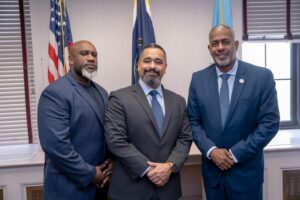
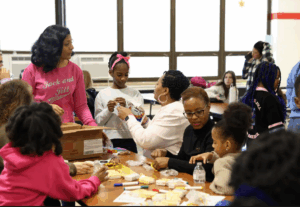
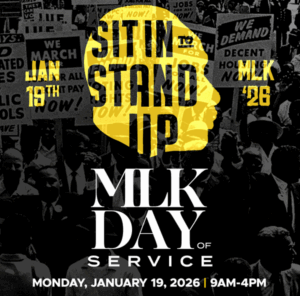

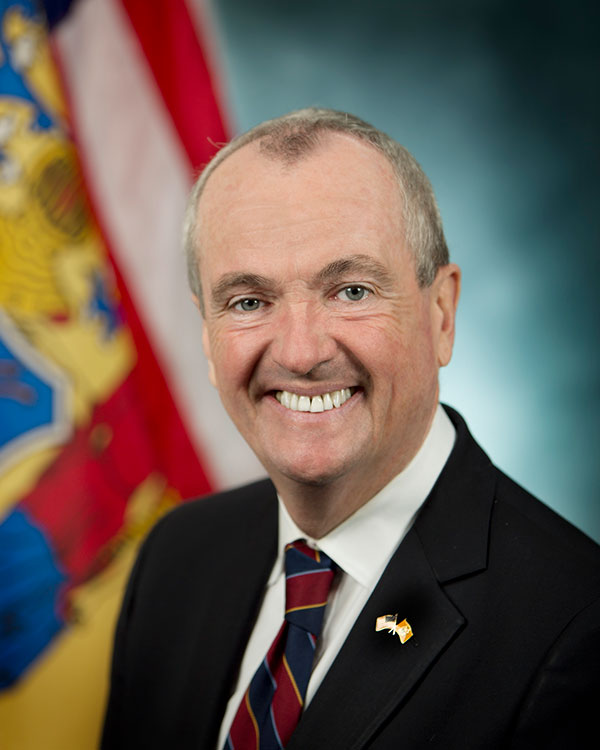
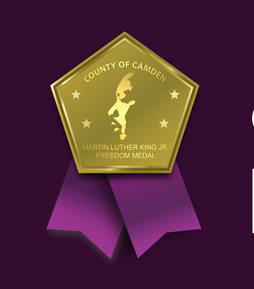
5 thoughts on “Monika Shealey makes history at Rowan University”